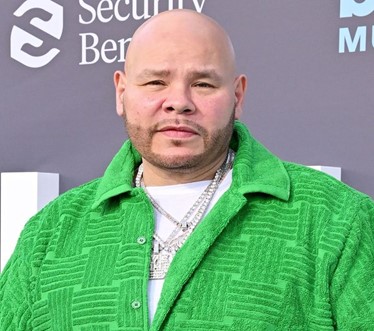Introduction:
In the intricate tapestry of hip-hop history, there are figures whose influence transcends mere music; they become cultural icons, shaping the very fabric of the genre. Among them stands Fat Joe, a titan of rap whose journey from the streets of the Bronx to the pinnacles of the music industry is not just a story of talent, but of resilience, reinvention, and community empowerment.
Early Life and Origins:
Born Joseph Antonio Cartagena on August 19, 1970, in the South Bronx, Fat Joe’s upbringing was steeped in the raw energy of hip-hop’s birthplace. Raised by Puerto Rican and Cuban parents, he navigated the challenges of inner-city life while immersing himself in the burgeoning rap scene of the 1980s.
Career Beginnings:
Fat Joe’s foray into music began in the late ’80s when he formed the hip-hop group D.I.T.C. (Diggin’ in the Crates Crew) alongside fellow Bronx rappers like Lord Finesse and Big L. However, it was his solo endeavors that truly propelled him into the spotlight. In 1993, he released his debut album, “Represent,” which showcased his gritty lyricism and charismatic delivery.
Rise to Prominence:
The mid-1990s marked Fat Joe’s ascent to prominence with albums like “Jealous One’s Envy” and “Don Cartagena,” earning him critical acclaim and a devoted fanbase. His collaboration with Big Pun on the hit single “Twinz (Deep Cover ’98)” further solidified his status as a force to be reckoned with in the rap game.
Commercial Success and Mainstream Appeal:
Fat Joe’s crossover success came with the release of “What’s Luv?” featuring Ashanti and Ja Rule, a chart-topping anthem that dominated airwaves in the early 2000s. This was followed by a string of successful albums, including “Jealous Ones Still Envy (J.O.S.E.)” and “All or Nothing,” showcasing his versatility and staying power in an ever-evolving industry.
Entrepreneurship and Philanthropy:
Beyond music, Fat Joe has diversified his portfolio, venturing into entrepreneurship with ventures like the urban clothing line FJ560 and his own sneaker store in New York City. Moreover, he remains deeply committed to giving back to his community, supporting various charitable initiatives and youth outreach programs in the Bronx.
Legacy and Influence:
Fat Joe’s legacy extends far beyond his chart-topping hits; he is a symbol of resilience and perseverance, embodying the spirit of hip-hop as a vehicle for self-expression and empowerment. His contributions to the genre have left an indelible mark, inspiring countless artists to follow in his footsteps.
Conclusion:
In the ever-evolving landscape of hip-hop, Fat Joe stands as a testament to the enduring power of authenticity and tenacity. From his humble beginnings in the Bronx to his status as a global icon, he has remained true to his roots while carving out a legacy that transcends generations. As the music industry continues to evolve, Fat Joe’s influence will undoubtedly endure, reminding us that greatness knows no boundaries.
(FAQs) about Fat Joe
1. Who is Fat Joe?
Fat Joe, born Joseph Antonio Cartagena, is a renowned rapper, actor, and entrepreneur. He rose to prominence in the 1990s as a prominent figure in East Coast hip-hop, hailing from the Bronx, New York.
2. What are Fat Joe’s biggest hits?
Fat Joe has numerous hit singles to his name, including “Lean Back,” “What’s Luv?” featuring Ashanti and Ja Rule, “Make It Rain” featuring Lil Wayne, “All the Way Up” featuring Remy Ma, French Montana, and Infared, and “So Excited” featuring Dre, among others.
3. How did Fat Joe get his start in the music industry?
Fat Joe’s journey in music began in the late 1980s when he formed the hip-hop group D.I.T.C. (Diggin’ in the Crates Crew). He later ventured into a successful solo career, releasing his debut album “Represent” in 1993.
4. What is Fat Joe’s style of rap?
Fat Joe is known for his gritty lyricism, charismatic delivery, and ability to blend street authenticity with catchy hooks. His style often incorporates elements of East Coast hip-hop, with influences from the Bronx’s vibrant rap scene.
5. Is Fat Joe involved in any philanthropic or community work?
Yes, Fat Joe is actively involved in various charitable endeavors and community initiatives. He has supported organizations focused on education, youth empowerment, and poverty alleviation in underserved communities, particularly in the Bronx.
6. Apart from music, what other ventures is Fat Joe involved in?
In addition to his music career, Fat Joe has ventured into acting and entrepreneurship. He has appeared in several films and television shows, including “Empire” and “Night School.” He also has business interests in fashion, including his own clothing line.
7. Has Fat Joe faced any controversies during his career?
Like many artists in the public eye, Fat Joe has had his share of controversies, including legal issues and feuds with other rappers. However, he has also been praised for his resilience and ability to navigate the challenges of the music industry.
8. What is Fat Joe’s legacy in hip-hop?
Fat Joe’s legacy in hip-hop is characterized by his contributions to the genre as a skilled lyricist, influential figure, and ambassador for East Coast rap. He has inspired countless artists and continues to be respected for his longevity and dedication to the craft.
Also Read: https://itsnews.co.uk/




